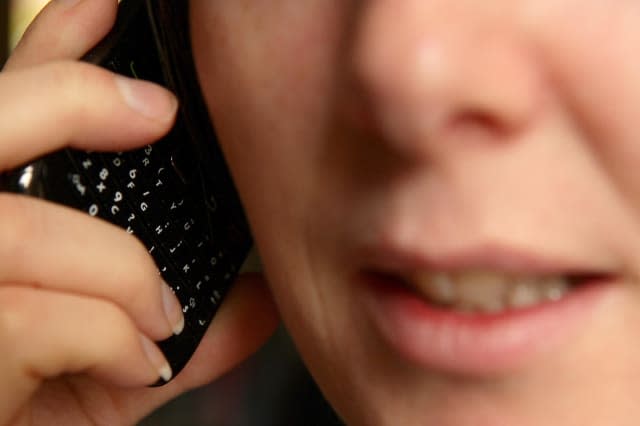Fraudsters tricked Brits into transferring £24m last year

A total of £23.6 million was lost in 2014 due to fraudsters tricking people across the UK into transferring money directly into their bank accounts, new figures from Financial Fraud Action (FFA UK) show.
The data was released as Neighbourhood Watch (NHW) today launched its annual national awareness week, with a focus on phone scams in partnership with FFA UK, whose members include banks, credit, debit and charge card issuers.
NHW's 173,000 volunteers will tell people across England and Wales to "hang up on fraud". They will ask their neighbours to share these warnings and pass on advice to three of their friends so that more than two million people can be reached by the end of the campaign.
10 scams to avoid
A similar campaign is also being run this week by Neighbourhood Watch Scotland.
The drive is backed by the Dedicated Card and Payment Crime Unit (DCPCU), the specialist police unit funded by the banking industry to tackle criminals involved in financial fraud.
This is the first time that NHW has conducted a campaign on phone scams, and it reflects the changing tactics of criminals who now prefer to minimise the risk of arrest by never coming into direct contact with their victim, organisers said.
Katy Worobec, director of FFA UK, said: "More and more people have heard about the dangers of phone scams and how they work, but unfortunately there is still a significant number who are unaware that highly professional criminals are systematically targeting members of the public to deceive them out of their savings.
"We want to declare this week a time for all those who are aware of these threats to talk to relatives and neighbours and warn them about suspect calls and how to protect themselves."
The fraud typically works by the criminal calling their victim and pretending to be from their bank, although there are variations.
The fraudster will convince the victim that fraud has been detected on their bank account and that they have to act fast by moving their money into a so-called "safe account" or risk losing their savings.
The fraud is often successful because criminals will use a range of techniques - such as "spoofing" the telephone number on the person's caller ID display so that it matches their bank's number, or making reference to genuine account information which they have fraudulently obtained elsewhere.
Jim Maddan, chairman of the Neighbourhood and Home Watch Network (England & Wales) said: "Neighbourhood Watch co-ordinators are well-known and trusted within their communities and they are keen to be proactive in keeping people safe.
"They are ideally placed to provide advice to their neighbours, as well as vulnerable people within their neighbourhood, about how they can avoid phone scams."
Consumers are being warned to be wary of cold callers who suggest the consumer hangs up the phone and calls them back. Fraudsters can keep a phone line open by not putting down the receiver at their end.
If someone feels something is suspicious or feels vulnerable, they should hang up, wait five minutes to clear the line, or where possible use a different phone line, then call their bank or card issuer on their advertised number to report the fraud, organisers said.
If someone does not have another telephone to use, they should call someone they know first to make sure the line is free.
Banks will also never ask customers to check the number showing on their telephone display matches their registered telephone number. The display cannot be trusted, as the number showing can be altered by the caller.
A bank or the police will never phone to ask for someone's four-digit card Pin or online banking password, even by tapping them into the telephone keypad.
They will not ask someone to withdraw money to hand over to them for safe-keeping or ask them to transfer money to a new account for fraud reasons, even if they say it is in that person's name.
Banks or the police will not send someone to a person's home to collect their cash, Pin, payment card or cheque book if they are a victim of fraud, or ask them to buy goods using their card and then hand them over for safe- keeping.
Detective Chief Inspector Perry Stokes, head of the DCPCU, said: "Unfortunately, thousands of people have fallen victim to phone scams so before you even consider revealing personal information over the phone or making a financial investment with a cold caller, always consider if you really know who the person is. If the answer is no, don't be a victim, just hang up the phone."
If someone thinks they may have fallen victim to fraud, they should contact their bank immediately and report it to the police through Action Fraud by calling 0300 123 2040.

Read more on AOL Money
One in 10 people fall for this banking scam
HMRC warning over surge in tax scams
10 scams to avoid




